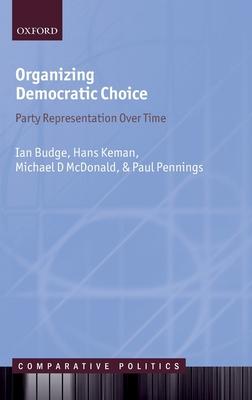This bold venture into democratic theory offers a new and reinvigorating thesis for how democracy delivers on its promise of public control over public policy. In theory, popular control could be achieved through a process entirely driven by supply-side politics, with omniscient and strategic political parties converging on the median voter's policy preference at every turn. However, this would imply that there would be no distinguishable political parties (or even any reason for parties to exist) and no choice for a public to make. The more realistic view taken here portrays democracy as an ongoing series of give and take between political parties' policy supply and a mass public's policy demand. Political parties organize democratic choices as divergent policy alternatives, none of which is likely to satisfy the public's policy preferences at any one turn. While the one-off, short-run consequence of a single election often results in differences between the policies that parliaments and governments pursue and the preferences their publics hold, the authors construct theoretical arguments, employ computer simulations, and follow up with empirical analysis to show how, why, and under what conditions democratic representation reveals itself over time. Democracy, viewed as a process rather than a single electoral event, can and usually does forge strong and congruent linkages between a public and its government. This original thesis offers a challenge to democratic pessimists who would have everyone believe that neither political parties nor mass publics are up to the tasks that democracy assigns them.
Comparative Politics is a series for students, teachers, and researchers of political science that deals with contemporary government and politics. Global in scope, books in the series are characterised by a stress on comparative analysis and strong methodological rigour. The series is published in association with the European Consortium for Political Research. For more information visit: www.ecprnet.eu (http: //www.ecprnet.eu)The Comparative Politics series is edited by Professor David M. Farrell, School of Politics and International Relations, University College Dublin, Kenneth Carty, Professor of Political Science, University of British Columbia, and Professor Dirk Berg-Schlosser, Institute of Political Science, Philipps University, Marburg.












